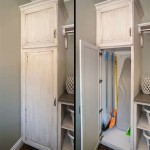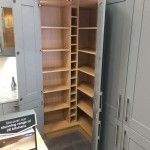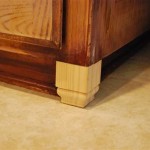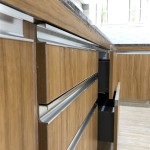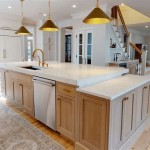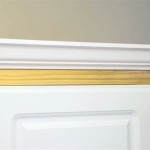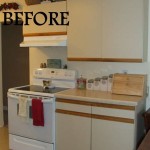Lights For Kitchen Cabinets: Illuminating Your Culinary Space
Kitchen cabinet lighting is a crucial element in creating a functional, safe, and aesthetically pleasing kitchen environment. It goes beyond simple overhead lighting, addressing specific needs within the workspace and enhancing the architectural details of the cabinetry. Thoughtfully planned cabinet lighting can dramatically improve visibility for food preparation, highlight decorative items, and create a warm, inviting ambiance. Effectively integrating lighting into and around kitchen cabinets demands careful consideration of several factors, including the type of lighting, its placement, and its power source.
Well-designed kitchen cabinet lighting offers a myriad of benefits. It significantly improves task visibility, reducing eye strain and minimizing the risk of accidents during food preparation. Strategically placed lights can also illuminate dark corners and hard-to-reach areas, making it easier to find items stored inside cabinets. Beyond functionality, cabinet lighting can elevate the overall aesthetics of the kitchen. Under-cabinet lights can create a subtle glow that enhances the countertops and backsplash, while in-cabinet lights can showcase glassware, china, or collectibles. The layering of light from different sources contributes to a well-balanced and visually appealing kitchen space.
Understanding Light Types for Kitchen Cabinets
The selection of appropriate light fixtures is paramount to achieving the desired effect. Several types of lights are commonly used for kitchen cabinets, each offering distinct advantages and disadvantages. The primary options include LED strip lights, puck lights, and linear lights. Each type has variations regarding brightness, color temperature, and power source.
LED strip lights are a popular choice due to their versatility and energy efficiency. These flexible strips can be easily cut to length and installed in various locations, such as under cabinets, inside cabinets, and along the toe kick. LED strip lights are available in a wide range of color temperatures, allowing homeowners to customize the lighting to suit their preferences. They also consume significantly less energy than traditional incandescent or halogen lights, resulting in lower electricity bills. Furthermore, LED strip lights have a long lifespan, reducing the need for frequent replacements.
Puck lights, typically circular or disc-shaped, are another common option for cabinet lighting. These lights are often used for under-cabinet lighting or to illuminate specific areas within cabinets. Puck lights are available in both wired and battery-operated versions, offering flexibility in installation. Wired puck lights provide a consistent and reliable power source, while battery-operated puck lights are ideal for areas where wiring is difficult or impractical. However, battery-operated puck lights require regular battery replacements, which can be inconvenient and costly over time.
Linear lights provide a more uniform and diffused light output compared to puck lights. These lights are typically longer and narrower than puck lights, making them well-suited for under-cabinet applications where a continuous strip of light is desired. Linear lights are often available in LED versions, offering the same energy efficiency and long lifespan benefits as LED strip lights. They can be surface-mounted or recessed into the underside of cabinets for a more integrated look.
Placement Strategies for Optimal Illumination
Proper placement of the chosen lighting is just as important as selecting the right type of light fixture. Strategic positioning of the lights ensures adequate illumination of the work surfaces and highlights the intended features of the cabinetry. Factors to consider include the height of the cabinets, the depth of the countertops, and the desired level of brightness. Careful planning is essential to minimize shadows and create a balanced lighting scheme.
Under-cabinet lighting is typically installed along the front edge of the cabinet, close to the backsplash. This placement provides direct illumination of the countertops, making it easier to perform tasks such as chopping vegetables or reading recipes. It is important to ensure that the lights are positioned far enough back from the front edge to avoid glare. Using a light shield or diffuser can help to soften the light and prevent harsh shadows. The distance between the lights should be consistent to create a uniform band of light across the entire countertop.
In-cabinet lighting can be used to illuminate the contents of the cabinets, making it easier to find items stored inside. Lights can be placed at the top of the cabinet, along the sides, or on the shelves. Top-mounted lights provide general illumination of the entire cabinet interior, while side-mounted lights are ideal for highlighting specific items. Shelf-mounted lights can be used to showcase glassware or collectibles. Motion-activated lights are a convenient option for in-cabinet lighting, as they automatically turn on when the cabinet door is opened and turn off when it is closed.
Toe-kick lighting, installed at the base of the cabinets, can add a subtle and stylish touch to the kitchen. These lights provide a gentle glow that illuminates the floor and creates a sense of depth. Toe-kick lighting is particularly effective in kitchens with dark floors, as it helps to prevent accidents by increasing visibility. It can also be used as a nightlight, providing a soft and comforting ambiance.
Power Source and Control Options
The power source for kitchen cabinet lighting can be either wired or battery-operated. Wired lights require a direct connection to the electrical system, while battery-operated lights rely on batteries for power. Each option has its own advantages and disadvantages, and the choice depends on the specific needs and limitations of the kitchen. The control method for the lights is equally important, determining how the lights are turned on and off and how their brightness is adjusted.
Wired lights offer a consistent and reliable power source, eliminating the need for battery replacements. However, installing wired lights requires professional electrical work, which can be costly. Wired lights are typically controlled by a wall switch, allowing for easy operation. Dimmers can be added to the circuit to adjust the brightness of the lights, providing greater control over the ambiance of the kitchen. Wired lights are a suitable choice for homeowners who want a permanent and maintenance-free lighting solution.
Battery-operated lights are easier to install than wired lights, as they do not require any electrical work. These lights are ideal for areas where wiring is difficult or impractical. However, battery-operated lights require regular battery replacements, which can be inconvenient and costly over time. The lifespan of the batteries depends on the type of lights, the frequency of use, and the quality of the batteries. Battery-operated lights are typically controlled by a switch on the light fixture itself or by a remote control. Some battery-operated lights also feature motion sensors that automatically turn the lights on when movement is detected.
Smart lighting systems offer advanced control options for kitchen cabinet lighting. These systems allow homeowners to control the lights using a smartphone app or voice commands. Smart lights can be programmed to turn on and off at specific times, adjust their brightness, or change their color temperature. They can also be integrated with other smart home devices, such as smart speakers and smart thermostats. Smart lighting systems provide a high level of convenience and customization, allowing homeowners to create the perfect lighting environment for any occasion. The initial cost is higher compared to traditional lighting, but the long-term benefits of energy savings and enhanced control may justify the investment.
The choice of power source and control options ultimately depends on the homeowner's budget, preferences, and the specific requirements of the kitchen. Careful consideration of these factors will ensure that the chosen lighting solution is both functional and aesthetically pleasing.

Kitchen Cabinet Lighting Ideas For Your Home Design Cafe

What You Need To Know About Under Cabinet Lighting

Under Cabinet Kitchen Lighting Pictures Ideas From

5 Types Of Under Cabinet Lighting Pros Cons 1000bulbs Blog

How To Install Kitchen Cabinet Lighting The Honeycomb Home
Under Cabinet Lighting

How To Buy Under Cabinet Lighting Ideas Advice Lamps Plus

Why Under Cabinet Kitchen Lights Are A Bright Addition To Your Home

How To Create Under Cabinet Lighting That Will Impress Your Guests

9 Best In Cabinet Lighting Options And Ideas
Related Posts

